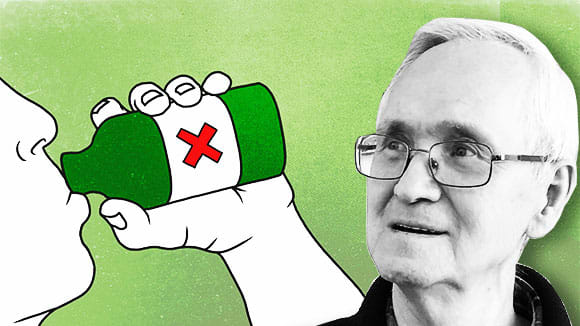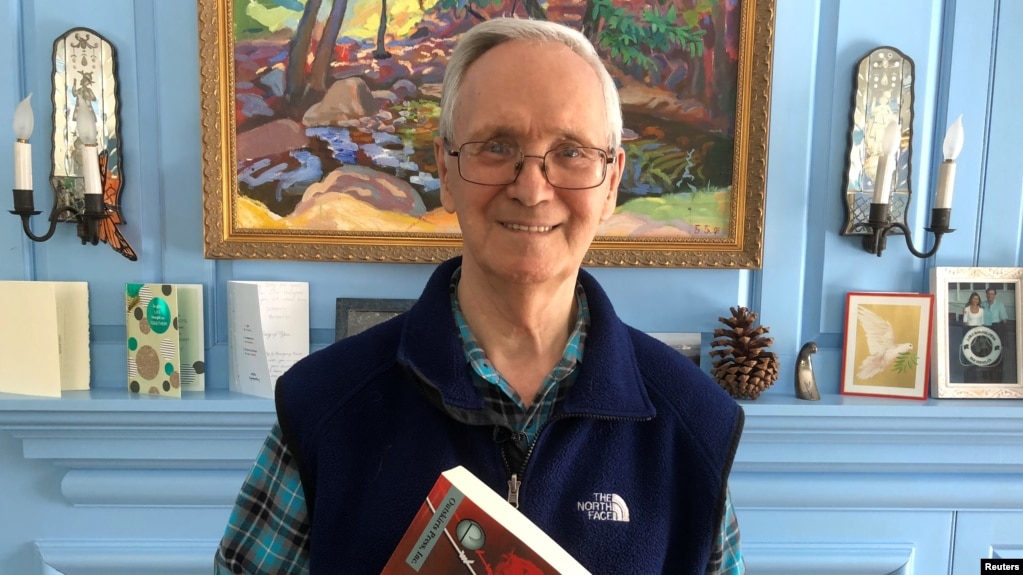If Sergei and Yulia Skripal survive being poisoned by Novichok nerve agent, they may be left suffering illnesses that ruin their lives – which may be the point of the attack, security experts have warned.
The case of a Russian military scientist accidentally exposed to Novichok appears to show that even surviving the effects of the supertoxic nerve agent is horrific.
Andrei Zheleznyakov was said to have been injected with an antidote almost immediately, but a friend said he still went from being a jovial, creative man to suffering “chronic weakness, toxic hepatitis, epilepsy, severe depression and an inability to concentrate”, before dying five years later.
March 19, 2018
Soviet Scientist Who Developed Novichok Poison Used on Sergei Skripal: ‘I’m Sorry’
The person who understands the effects of novichoks best is Vil Mirzayanov, a scientist and later head of Foreign Technical Counterintelligence at the State Scientific Research Institute of Organic Chemistry and Technology (GosNIIOKhT) in Moscow in the 1970s and 1980s, which allegedly produced the shadowy class of binary nerve agents known as the “novichoks” (newcomers). And he has a message for Skripal and his daughter: my bad.
“I’d tell him [Skripal] that I’m very sorry that I participated in the development of these weapons,” Mirzayanov told The Daily Beast.
GosNIIOKhT scientists developed the agents under a program codename “Folio” beginning in the 1980s. Mirzayanov spoke out about the covert program as the Soviet Union fell, earning him a prison term at home before he escaped to exile in the United States.
During the Cold War, the idea that a novichok agent would be used in a covert assassination seemed alien to Mirzayanov and his fellow scientists. The weapons, developed in intense secrecy by Soviet scientists, were originally designed for use in bombs and shells on a battlefield rather than a cloak-and-dagger assassination in a suburb in southern England.
“I couldn’t imagine. No one could imagine. It’s outrageous. We were convinced at the time that we were developing these weapons and testing others for the protection of the country and for defense,” Mirzayanov said. “It was not our goal. None of the scientists supposed that it would be used with terrorist goals. It was a military thing. It was a weapon for mass killing.”
Source: Soviet Scientist Who Developed Novichok Poison Used on Sergei Skripal: ‘I’m Sorry’
American General In Syria Confirms US Forces Killed Hundreds Of Russians In Massive Battle – The Drive
Remember that rumor of a Russian attack on U.S. forces in Syria? Apparently it’s more than a rumor.
I’m not sure what Putin was thinking here. Did he think he could get away with it?
A senior U.S. general appears to have confirmed that hundreds of Russians fought – and died – in a major battle against American forces and their local counterparts in Syria. More importantly, U.S. Army Brigadier General Jonathan Braga, director of operations for the main U.S. military task force in charge of operations in Iraq and Syria, said he feared the situation could have escalated into an all-out conflict with Russia, something we at The War Zone have warned repeatedly is becoming a worryingly realistic possibility.
Braga gave the surprisingly candid account of what had happened to NBC’s Richard Engel, who traveled with the general to visit the exact site of the incident in Syria and to see what the U.S. military was doing to improve its defensive posture.
Ex-Russian Chemical Weapons Specialist: Moscow Was Sure No One Would Find Poison
Vil Mirzayanov is a Russian emigre to the U.S. and chemical weapons specialist who helped develop the poison believed to have been used in the attack in Britain on Sergei Skripal, a former colonel in the GRU, Russia’s military intelligence, and his daughter Yulia.
Mirzayanov spoke with VOA’s Russian service.
Q: You were involved in the development of unique Soviet chemical toxic substances of nerve agent, “Substance 33,” “A-232” and “?-234,” known today as “Novichok” (Newcomer). At the same time, you claim that no other country in the world except Russia has ever had such weapons. How were British investigators able to establish what kind of substance was used to poison Sergei Skripal?
Mirzayanov: To establish which chemical agent was used in this case, you need to have access to a powerful high-resolution mass spectrometer, in the library of which are the spectra of all known compounds. The sample taken is compared with those already known, and the computer indicates a spectrum with a 96 percent probability. That is, there can be no error here.
Source: Ex-Russian Chemical Weapons Specialist: Moscow Was Sure No One Would Find Poison
Ominous biosecurity trends under Putin
Regimes of all types throughout history have sought to harness science for war. As a result, otherwise beneficial technology can become ‘dual-use’. Biological weapons are among the starker examples: research meant to save lives is used to take them. Now, in the run up to elections in Russia, and with concerns mounting about the nation’s role globally, biological-weapons specialists Raymond Zilinskas and Philippe Mauger deliver Biosecurity in Putin’s Russia.
Bioweapons research in Russia and its environs extends back as far as 1928. It took off in the 1970s, for example through the infamous clandestine Biopreparat network. There, the Soviets weaponized pathogens including the smallpox and Marburg viruses and the anthrax bacterium Bacillus anthracis. Zilinskas and Mauger focus on the years 2012–16, when political tensions between Russia and the West intensified markedly. Concerned by apparent shifts in Russia’s pronouncements and actions regarding dual-use activities related to biosecurity, Zilinskas and Mauger write that they wish to “move the discussion over Russian compliance concerns to the public sphere”, where an evaluation based on evidence becomes possible.



